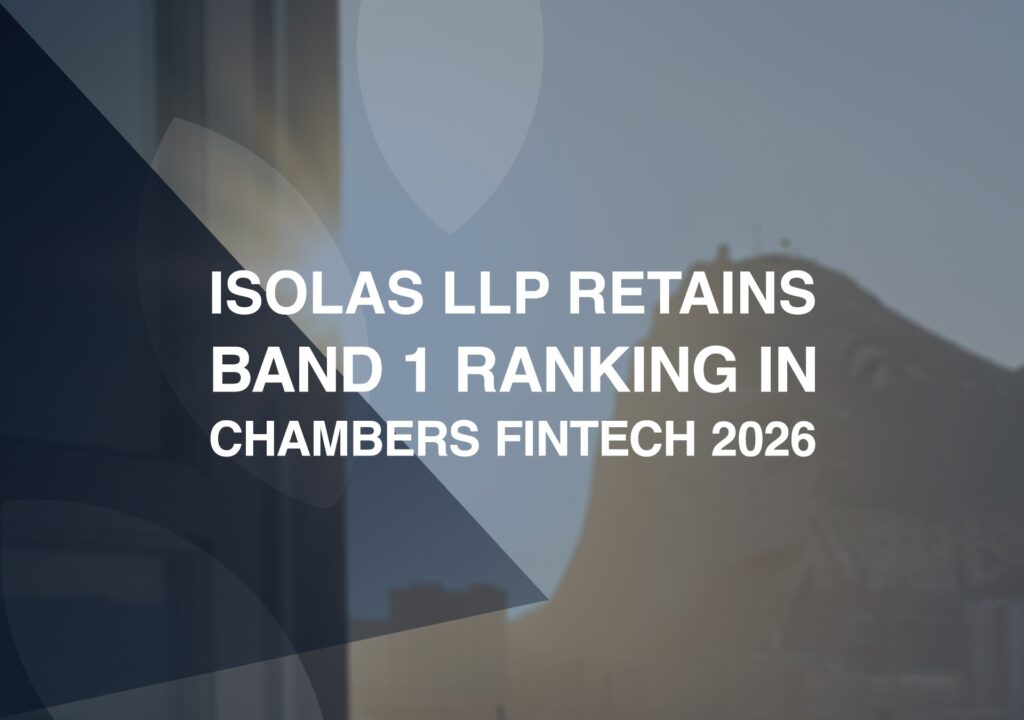Wednesday 30th October 2024 saw the UK Chancellor, Rachel Reeves, present the much anticipated first Labour Budget. This confirmed a number of significant tax changes that are to be implemented in April 2025. Essentially, the UK is transitioning from a domicile based system to a residence based system. This means that domicile will no longer be a connecting factor for inheritance tax purposes and will instead be replaced by the concept of a long-term resident.
This announcement in the UK budget to abolish the UK resident non-domiciled (res non-dom) tax regime, has resulted in high-net-worth individuals (HNWIs) and internationally mobile individuals re-evaluating and considering their options.
The main changes to consider are as follows:
Non-Doms
UK resident taxpayers can no longer claim the remittance basis of taxation with effect from 6 April 2025. Those UK taxpayers who previously claimed the remittance basis will still be subject to tax on the remittance basis in relation to any unremitted foreign income and capital gains.
New Regime
A new regime will be implemented (the Four Year FIG Regime) available to UK nationals and former UK domiciled persons who have not resided in the UK for ten years prior to applying for UK residency.
The main highlights of the regime are as follows:
- 100% tax relief on certain categories of foreign income and foreign chargeable gains (referred to as “FIG”) effective for four consecutive tax years, starting from the first year of UK residency.
• for foreign partnerships, profits will only be deemed foreign if all partnership activities are conducted outside the UK.
• relief will not be available for foreign income and gains that were taxable under the remittance basis from a previous period of UK residence if those amounts are remitted during the four-year period.
• Overseas Workday Relief will now be available for a period of four years and will be synchronized with the Four-Year FIG Regime. This means that employment income qualifying for Overseas Workday Relief can be received in or transferred to the UK without incurring tax. However, there will be an annual cap on this relief, limited to the lower of 30% of the qualifying employment income or £300,000.
• A “Temporary Repatriation Facility” (TRF) will be introduced for individuals who have utilized the remittance basis. The TRF will apply a special tax rate of 12% for the tax years 2025/26 and 2026/27, increasing to 15% in the 2027/28 tax year, after which the TRF will no longer be available
• Business Investment Relief will remain available until 6 April 2028 provided that the FIG invested arose before 6 April 2025. FIG that has been used to make a qualifying investment can be designated under the TRF.
Rebasing Opportunity
A limited rebasing opportunity is available for capital gains tax purposes. This applies to individuals who claimed the remittance basis between 6 April 2017 and 5 April 2025 and were not UK domiciled or deemed domiciled before 6 April 2025. Those who qualify can choose to rebase certain personally held foreign assets to their market value as of 5 April 2017. Rebasing is only available for assets:
(i) owned on 5 April 2017,
(ii) (that were situated outside of the UK between 6 March 2024 and 5 April 2025 (subject to certain exceptions) and
(iii) that are disposed of on or after 6 April 2025
Larger Scope of Inheritance Tax
The UK is transitioning from a domicile based system to a residence based system. Domicile will no longer be a connecting factor and will be replaced by the concept of a long-term resident. An individual will be a long-term resident once they have lived in the UK for 10 years in a 20-year period
- UK assets are always within the scope of UK inheritance tax
• Non-UK assets will be subject to inheritance tax on their worldwide assets even if they are not UK resident in year 11
• The minimum period for which a long-term resident continues to be subject to UK inheritance tax on worldwide assets is three years. This corresponds with the current rule under which an individual who is deemed domiciled in the UK remains subject to worldwide UK inheritance tax for three years after leaving.
• The number of years for which an individual remains subject to worldwide UK inheritance tax corresponds to the number of years for which they have been UK resident in excess of 10 years.
Inheritance Tax and Trusts
- Whether non-UK assets held in a trust fall under the scope of UK inheritance tax primarily depends on the residency status of the settlor at the time of the relevant inheritance tax event. If the settlor has passed away, it will be determined by whether they were a long-term resident at the time of their death.
• Assets in a trust will transfer in and out of the scope of worldwide inheritance tax in the same way as assets owned by the settlor personally.
• In most cases, an inheritance tax charge will apply when the settlor ceases to be a long-term resident. The maximum tax liability will be 6%, with the specific rate determined by how much time has passed since the last 10-year anniversary of the trust’s creation.
• Assets assets that are already in trust as of 30 October 2024 (where the settlor is still alive and assets are exempt from inheritance tax) they will remain protected from inheritance tax upon the settlor’s death. However, if the settlor becomes a long-term resident, the non-UK assets in the trust will no longer be exempt from the inheritance tax charges. The property regime applies a tax charge of up to 6% at each 10-year anniversary of the trust, as well as a corresponding proportionate charge if assets are removed from the trust between anniversaries.
Changes to Capital Gains Tax (CGT)
The main change to CGT in the UK is an increase on disposals after 30th October 2024 at a standard rate of 18% (for basic tax rate payers) and a higher rate of 24% (for higher and additional rate taxpayers).
Benefits of a capital nature received from certain offshore trusts are subject to capital gains tax when they are “matched” with capital gains realized by the trustees. If the gains are not matched within the first two tax years after they arise, an additional charge of 10% per year is imposed, capping out after six years. Previously, the maximum total charge (including the supplement) was 32%, but this has now increased to 38.4%.
The draft legislation includes transitional provisions to help manage complexities that may arise if capital gains tax rates change partway through a tax year, rather than taking effect from 6 April.
Business Asset Disposal Relief or Investors’ Relief may be available to reduce the capital gains rate
Considering alternative options
There are opportunities to consider what if any action should be taken in light of these changes. This may vary from taking the opportunity to rebase, re-evaluate offshore structures or in some cases, individuals may be looking to relocate.
Equally individuals looking to move to the UK may be interested in taking up the new FIG Regime.
For those considering alternative jurisdictions, Gibraltar may be the right solution. An appealing British destination based in the mediterranean it offers, amongst other things, advantageous tax incentives, quality of life, and a stable political environment, as well as being a robust and highly regarded offshore financial centre.
The following are key factors to take into account when considering Gibraltar:
- Ease of Connectivity
As a British Overseas Territory with close links to the UK, Gibraltar offers convenient connections for those who may still wish to maintain ties to the UK. Daily flights between Gibraltar and London provide easy access, enabling regular travel without the need to navigate complex customs or visa issues. Moreover, Gibraltar’s small geographic footprint makes it easy to navigate, with all services and amenities close at hand.
- Favourable Tax System
Gibraltar’s tax system has long been attractive to those seeking a well-regulated, tax neutral jurisdiction. With no capital gains tax, inheritance tax, wealth tax, gift tax, transfer tax or VAT, Gibraltar offers a level of tax certainty that is increasingly rare. Gibraltar also offers an attractive tax regime for HNWIs, notably through its Category 2 (Cat 2) program, which caps income tax at a maximum of £42,380 per annum (except for certain types of income accrued and derived from Gibraltar), as well as the High Executive Possessing Specialist Skills (HEPSS) status which is a specialist tax status for skilled employees which limits tax in Gibraltar to the first £160,000 of income covered by a HEPSS certificate, resulting in an annual tax of £39,940. Gibraltar’s regime does not require users to be domiciled elsewhere, allowing residents to enjoy the benefits directly without complex compliance structures.
- Regulatory Certainty and Commitment to Transparency
As part of its commitment to remain compliant on the global stage, Gibraltar has implemented a robust framework for transparency and regulatory compliance. It adheres to EU anti-money laundering (AML) and know-your-customer (KYC) directives and actively collaborates with international regulatory bodies. This framework not only enhances Gibraltar’s reputation but also provides peace of mind for HNWIs whose personal and financial reputations are central to their relocation decisions.
- High Quality of Life and Attractive Climate
Beyond financial and regulatory benefits, Gibraltar offers a Mediterranean climate and lifestyle. Residents enjoy access to quality healthcare, international schools (modelled on the UK system), and a vibrant cultural community. With an enviable Mediterranean climate and proximity to Spain, Gibraltar offers residents a comfortable lifestyle with the convenience of a smaller jurisdiction that is both secure and cosmopolitan.
- A Jurisdiction Focused on Stability and Continuity
In the wake of these significant changes to the UK tax regime, many HNWIs are understandably cautious about jurisdictions that may see similar reforms in the future. Gibraltar, however, has signalled a clear commitment to maintaining its current fiscal advantages and continues to refine its programs to align with international standards while protecting the interests of its residents.
- Rule of Law
Gibraltar benefits from a common law legal system. It has its own Parliament and develops its own laws which are largely based on UK statute. It also has its own court system with its highest courts being the Privy Council and Court of Appeal in the UK.




